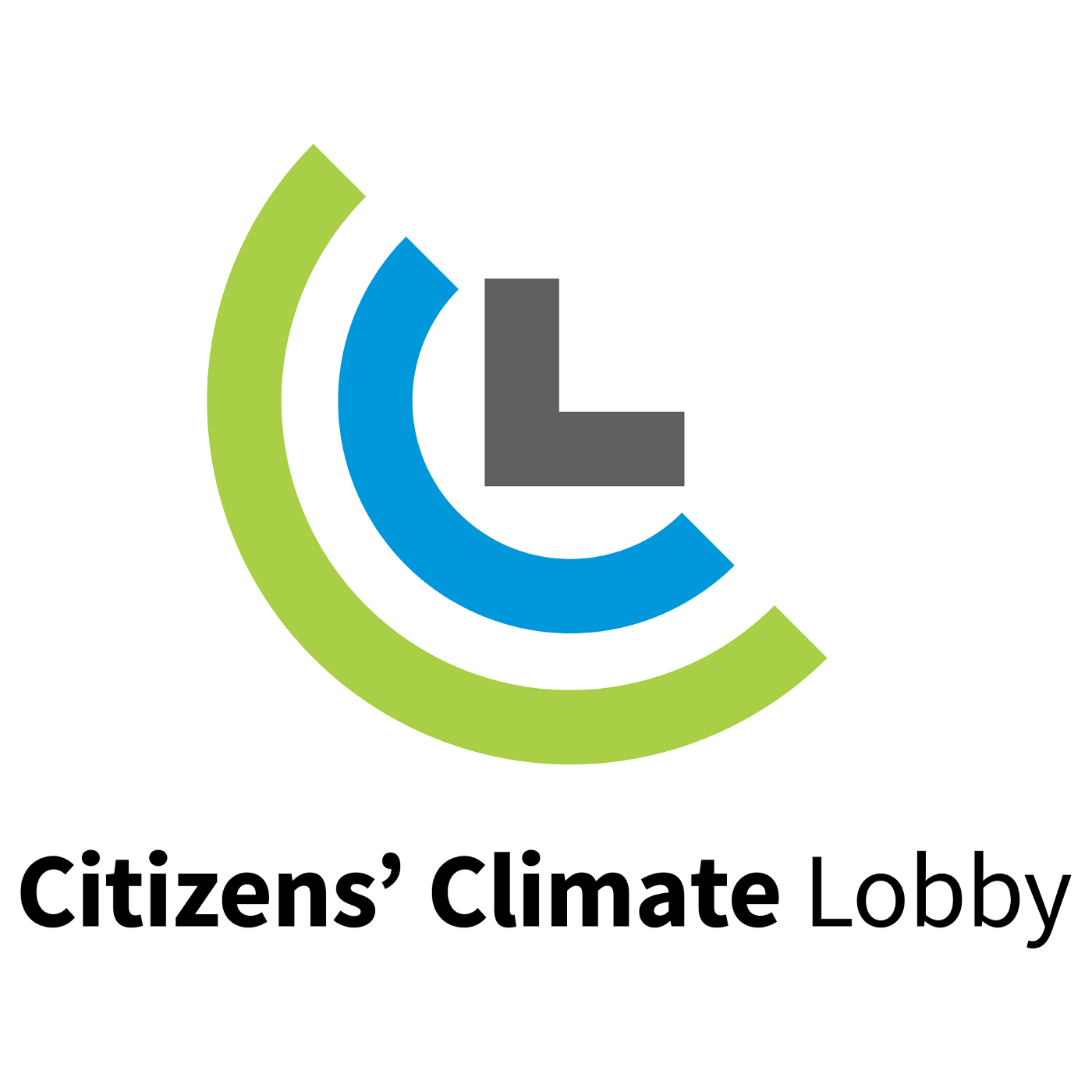Episodes
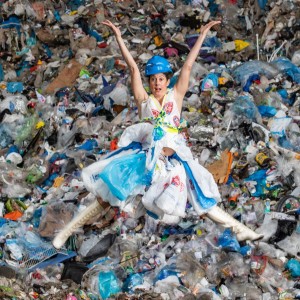
Friday Oct 23, 2020
Friday Oct 23, 2020
Andrew Stuhl, an associate professor of environmental studies and sciences at Bucknell University, has been interviewing residents from Pennsylvania’s Susquehanna River Valley about what they remember about 1972. He keeps hearing about the powerful smell of flood mud. This was the pungent odor throughout the Susquehanna Valley after Hurricane Agnes brought historic rainfalls and a massive flood which upended lives and reshaped towns and waterways.
“It reminds me of the connection between smell and memory, and how quickly a memory can come back to you if you smell something in the present day,” Andrew tells podcast host, Peterson Toscano.
"I like to think about that as a metaphor for the importance of history and the importance of moments like Hurricane Agnes. They’re always with us, and sometimes they don’t come to our immediate senses, but they can be triggered, and they can be brought up really quickly. I like to believe in the power of memory and history, to mine those experiences, to reflect on them, and recognize and regard them, so we that can walk today in the difficult moments, and get through them.”
Andrew talks about his community-based research, the Agnes Flood Project. You will learn why this one storm is still so important, not just for the region, but for the entire country. Lessons drawn from 1972 and the resiliency modeled by local residents during and after the storm will help us in coping and caring for each other during the Coronavirus Pandemic and with the growing risks of climate change.
If you or someone you know have Hurricane Agnes stories to share for the Agnes Flood project, contact Andrew Stuhl and the team. They are also looking for pictures from the hurricane and its aftermath. Email agnesrevisited@gmail.com. This story was made possible through a collaboration with Susquehanna Life Out Loud podcast.
The Art House
How does an artist decide to do the work she does? How does that work evolve overtime? What impact does it have on the audience and how can an artist deepen that impact? During a recent conversation with dancer and choreographer, Lynn Neuman, Peterson Toscano encountered an artist with boundless curiosity. This curiosity drives her work.
As director of Artichoke Dance Company, Lynn recognizes the vital role art plays in addressing issues like climate change. Entertaining and Educating not enough though for Lynn and her company, though. They always want to do more to get people to act. Through community engagement and direct outreach to lawmakers, they are training community members how to change legislation.
And in this time of the Coronavirus pandemic Lynn Neuman and Artichoke Dance Company have been adjusting and adapting once again. See their Covid Creations. “It reflects our feelings of isolation and desires for connection during the corona virus. Filmed at various times of day, the series reflects the available bandwidth of the internet.”
Dig Deeper
-
Hurricane Agnes, National Weather Services
-
Tropical Storm Agnes devastated Pa. in 1972: ‘Battered, lashed, flooded and paralyzed’ Penn Live
-
The 1972 Agnes Flood at Milton, PA, video with archival footage
-
Dancing In Plastic — How One Woman Is Shining A Light On Plastic Pollution, Medium and accompanying video
-
Waste Side Story, Robin Michals photography collaboration with dancer Lynn Neuman.
-
New York State’s Bag Waste Reduction Law, NY Dept of Environmental Conservation
We always welcome your thoughts, questions, suggestions, and recommendations for the show. Leave a voice mail at 518.595.9414. (+1 if calling from outside the USA.) You can email your answers to radio @ citizensclimate.org.
You can hear Citizens’ Climate Radio on iTunes, Spotify, Stitcher Radio, SoundCloud, Podbean, Northern Spirit Radio, Google Play, PlayerFM, and TuneIn Radio. Also, feel free to connect with other listeners, suggest program ideas, and respond to programs in the Citizens’ Climate Radio Facebook group or on Twitter at @CitizensCRadio.
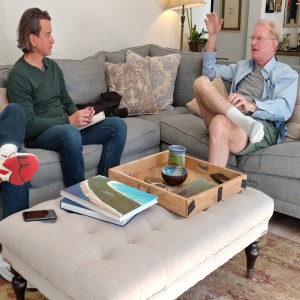
Friday Sep 25, 2020
CCR Ep 52 Doug Parsons on Adaptation, Resilience, and Bouncing Forward
Friday Sep 25, 2020
Friday Sep 25, 2020
Climate change related work often comes down on one of two sides: 1. Mitigation to reduce or end human causes greenhouse pollution in order to slow down and lessen the impacts of global warming. 2. Adaptation of our communities and infrastructure in order to prepare for the impacts of climate change and respond to extreme weather and other consequences of climate change.
Doug Parsons, the host of the America Adapts Podcast talks to us about what he has learned from nearly 100 episodes interview adaptation experts. He will discuss differences between adaptation and resiliency. He highlights efforts to adapt to sea level rise, wildfires, and flooding, and points out an impact of climate change that will affect almost everyone at some point in their lives—extreme heat.
You will also hear an excerpt from a conversation Doug Parsons has with s Dr. Carolyn Kousky, the Executive Director at the Wharton Risk Management and Decision Processes Center at the University of Pennsylvania. They discuss how wildfires in California drove their utility into bankruptcy and what policy reforms are needed to prevent this from happening again.
Doug also reflects climate adaptation in light of the Coronavirus Global Pandemic. What lessons are climate adaptation experts learning? What challenges do they face?
The Art House
Joining us in the Art House is Musician and composer Jason Davis. Jason curates ClimateStoriesProject.org. The site hosts videos from people all over the world. They reveal the impacts of climate change in their lives, and how they are responding. Jason takes some of these stories and composes music to accompany them. You will hear a moving and powerful testimony from John Sinnok, Inuit elder in Alaska. Woven around the story is Jason’s haunting and beautiful composition for the double base. He calls the piece Footsteps in Snow. You will also learn how you can share your own story on the website.
Jason wants to hear your climate story. He invites you to explore his site to read other climate stories then consider contributing your own. That website is climatestoriesproject.org
We always welcome your thoughts, questions, suggestions, and recommendations for the show. Leave a voice mail at 518.595.9414. (+1 if calling from outside the USA.) You can email your answers to radio @ citizensclimate.org.
You can hear Citizens’ Climate Radio on iTunes, Spotify, Stitcher Radio, SoundCloud, Podbean, Northern Spirit Radio, Google Play, PlayerFM, and TuneIn Radio. Also, feel free to connect with other listeners, suggest program ideas, and respond to programs in the Citizens’ Climate Radio Facebook group or on Twitter at @CitizensCRadio.

Friday Aug 28, 2020
CCR 51 Art and Identity in a Time of Climate Change
Friday Aug 28, 2020
Friday Aug 28, 2020
Princella is also a business owner of Louisiana Food Fellow, a cohort of change leaders working within local food systems. In Central Louisiana, she partners with community leaders to provide environmental education and implement sustainable and eco-friendly programs in economically disadvantaged communities.
- The Grapes of Wrath by John Steinbeck
- Station Eleven by Emily St. John Mandel
- Generation Z by Peter Meredith
- We Are Unprepared by Meg Little Reilly
- The Man with the Compound Eyes by Wu Ming-Yi
- A Rain of Night Birds Dsena Metzger
- Flight Behavior by Barbara Kingsolver
- Mr. Eternity by Aaron Thier — Hear him speak and talk about his novel on CCR Ep 10
- Code Blue by Marissa Slaven — She discusses the book and does a reading from it in CCR Ep 33
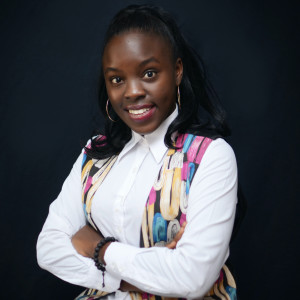
Friday Jul 24, 2020
CCR 50 Big Climate Problems Require Even Bigger Global Solutions
Friday Jul 24, 2020
Friday Jul 24, 2020
Think of this as a patchwork quilt. Instead of one long main segment, the Art House, and the Puzzler Question, we have sewed together five shorter segments from around the world that each stand alone. Together they tell a larger story.
Olivia Oguadinma in Nigeria discusses the role of storytelling in motivating her peers to meaningful action. Through her Gems on Earth podcast she reaches young people throughout Western Africa and beyond.
Doerte Wihan, a mother of five and a kindergarten teacher in Berlin, Germany had not given climate change much of a thought. Then she attended a student climate strike with one of her children. This one event launched her into the world of extreme climate change activism. She is now a member of the climate protest group, Extinction Rebellion. She talks about her dramatic transformation and the strength she has found being in community with fellow climate activists.
Artist Shane Petzer in Barrydale, South Africa talks about turning trash into art. Through the Magpie Art Collective, he and fellow artists create breathtakingly beautiful chandeliers all made from trash. Two of these hung in the White House in the Obama’s private quarters. During this time of Coronavirus lockdown, Magpie Art Collective have partnered with the Quakers in the Western Cape to create #QuakerPeaceDoves. Find out about how you can take part in the collective remotely and turn your trash into art.
And in the USA we feature Solomon Goldstein-Rose. In 2017 at the age 22 Solomon was elected to Massachusetts legislature. After a two year term, he decided he would not run again. Instead he has been ramping up his efforts to get us thinking and acting about climate change. In March just as the Covid-19 Global Pandemic shut everything down, Solomon published his first book: The 100% Solution. A Plan for Solving Climate Change. The book is filled with whimsical and technically accurate illustrations by visual artist and writer, Violet Kitchen. She tells us about the role art can play in change movements.
Since this is our 50th episode, friends of the show have left us messages. You will hear greetings and well wishes from listeners and also from former guests, Dr. Natasha DeJarnett (many episodes,) Solemi Herandez (ep. 43,) Katie Zakrzewski (ep 48) and Brian Ettling (Ep. 24.) We also share messages from follow podcasters.
- Doug Parsons from America Adapts Podcast
- LaUra Schmidt and Aimee Lewis-Reau with the Good Grief Podcast
- Lew Blaustein from Green Sports Pod
We always welcome your thoughts, questions, suggestions, and recommendations for the show. Leave a voice mail at 518.595.9414. (+1 if calling from outside the USA.) You can email your answers to radio @ citizensclimate.org.
You can hear Citizens’ Climate Radio on iTunes, Spotify, Stitcher Radio, SoundCloud, Podbean, Northern Spirit Radio, Google Play, PlayerFM, and TuneIn Radio. Also, feel free to connect with other listeners, suggest program ideas, and respond to programs in the Citizens’ Climate Radio Facebook group or on Twitter at @CitizensCRadio.
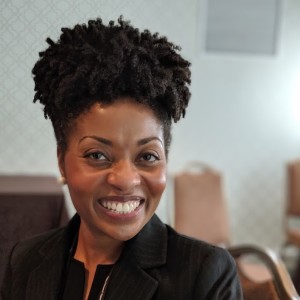
Friday Jun 26, 2020
Friday Jun 26, 2020
“Imagination is everything. It is the preview of life's coming attractions.” -Albert Einstein.
As climate change advocates, our ability to imagine a better future sometimes requires supernatural skills. Still engaging our imagination is essential to stirring up the kind of hope and excitement that inspires others to action. We need to articulate what it is we are fighting for? What is the world we want to create? Through a mind-expanding thought experiment, three guests join us to help unleash our imagination potential. Imagine a world without fossil fuels. What does it look like? What does it sound like? What does it smell like?
Hannah Pickard at Boston’s New England Aquarium shares proven insider tips about effective communication strategies. Hannah Pickard is the Program Manager for the National Network of Ocean and Climate Change Interpretation (NNOCCI) where she leads a national effort to change public discourse on climate change to be positive, civic-minded and solutions-focused. For the last 10 years, she’s grown a network of over 184 institutions who are committed to using their public platforms to invite their communities into climate action and support each other to improve their practice. She is a climate communications specialist and trainer of evidence-based communications methods that empower hope & civic action on climate. She has abackground in informal education, social impact strategy, conservation psychology, community engagement and evaluation.
Dr. Natasha DeJarnett has been a leader in environmental health research for over 10 years. Her positions in national environmental and public health associations as well as academia has advanced research agendas for the environmental health workforce, established successful national climate change and health initiatives, and inspired the next generation of environmental health professionals. In addition, she serves on the Boards of Citizens’ Climate Education and Physicians for Social Responsibility.
Sean Dague is software engineer by day, and the group leader for the Mid Hudson South chapter of Citizens Climate Lobby He came to climate action after seeing the impacts of Hurricane Irene and Sandy in the north east. In addition to his work with Citizens Climate Lobby, he's also an En-ROADS Climate Simulation tool ambassador. He's a huge fan of trains, heat pumps, and electric vehicles.
The Art House
Jennie Carlisle and Laura England are both part of the Climate Stories Collaborative at Appalachian State University in North Carolina.
“The Climate Stories Collaborative is our response to the growing call for more trans-disciplinary and creative approaches to climate change communication,” they explain. “Our mission is to grow the capacity of our faculty and students to be more creative and compelling climate storytellers.”
While many of the students finish with completed pieces of art, Jennie stresses that the process required to produce the art is their primary goal. Of course, they also want to reach out to the wider world whenever possible.
At the end of the school year, the Climate Stories Collaborative hosts a showcase for the student artists. This provides them with an opportunity to engage with the wider public in a large gallery space. Laura explains that in the past, students, faculty, and community members would mingle in the gallery to view the art and see performances.
Because of the COVID-19 pandemic, the school closed and the showcase had to be canceled. But like so many others, they adapted and took the showcase online. As a curator, Jennie initially worried about creating a virtual showcase but quickly saw multiple benefits, including seeing viewers become deeply engaged with the art and the artists through their comments. The Climate Stories Collaborative now reaches many more people all over the world through this Instagram online showcase.
- Video of Sean Dague’s Thought Exercise: Imagine a World without Fossil Fuels
- Hannah Pickard CCL International Call March 2020
- Peterson Toscano’s Citizens Climate Virtual Conference Breakout Session: Telling a New Kind of Climate Story
- Citizens Climate Radio Ep 39 Envisioning and Communicating Climate Success
- Climate Change and the Imagination by Kathryn Yusoff and Jennifer Garbrys (PDF)
You can hear Citizens’ Climate Radio on iTunes, Spotify, Stitcher Radio, SoundCloud, Podbean, Northern Spirit Radio, Google Play, PlayerFM, and TuneIn Radio. Also, feel free to connect with other listeners, suggest program ideas, and respond to programs in the Citizens’ Climate Radio Facebook group or on Twitter at @CitizensCRadio.
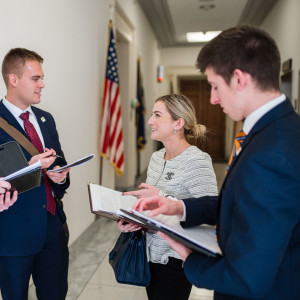
Friday May 22, 2020
CCR Ep 48 Republicans Ready To Tackle Climate Change
Friday May 22, 2020
Friday May 22, 2020
For a long time climate advocates faced skepticism and resistance coming from Republican lawmakers. That is changing. In February Citizens Climate Radio host Peterson Toscano traveled to Washington DC for the first ever Conservative Climate Training and Lobby Days. Nearly 100 people showed up from all over the country, young and older. They met with Republican staff and members of congress to talk about climate change and a path forward.
In this episode you will hear excerpts from interviews with volunteer lobbyists Carlos Simms, Mary Lawing, Katie Zakrzewski, Isuru Seneviratne, and Cindy Burbank. On a panel of Republican climate leader Alex Flint, the Executive Director at Alliance for Market Solutions spoke during the February event. Mr. Flint previously served as staff director of the U.S. Senate Committee on Energy and Natural Resources. He was the senior vice president of governmental affairs at the Nuclear Energy Institute, and he was a member of President Trump’s transition team. He outlines for us the dramatic shifts he has witnessed while speaking with lawmakers.
Jim Tolbert, Citizens Climate Education Conservative Director and Jacob Abel, a Citizens Climate Conservative fellow, provide insider glimpses to the conversations about climate change they have with fellow Conservatives.
You will learn what has changed in the Republican party, and the new landscape climate advocates lobbying Conservative members of Congress now face. Guests will share what Republicans bring to the climate conversation and the Conservative values that compel them to pursue effective ways to transform our energy economy. You will also receive advice and learn the ways these conservatives are speaking with their family, friends, and elected leaders about climate change.
Dig Deeper
-
RepublicEN, conservatives, libertarians, and pragmatists of diverse political opinion standing together because climate change is real, and it's our duty and opportunity to reduce the risks.
-
Margaret Thatcher - UN General Assembly Climate Change Speech (1989)
-
The End of Republican Climate Change Denial by Alex FlintPuzzler Question
Puzzler Question
We updated last month’s puzzler question and made it more personal.
He is the question slightly restated:
In a Zoom call you share your renewed commitment to promote climate solutions and ask your friend, Gretchen, to join your group. Gretchen slowly shakes her head and says, “I am concerned about the planet too, but with so many people affected by Covid-19, I think we are just going to have to deal with that first. Climate action is very important but for so many people right now, there are more pressing issues to address.”
The dilemma so many of us face right now is that climate action has been eclipsed by an immediate threat to humanity. How are you dealing with this? How are you navigating this new landscape? How are you adapting? What is a resource you have found helpful?
Share your answers with Peterson by June, 17, 2020.
Leave a voice mail at 518.595.9414. (+1 if calling from outside the USA.)
You can email your answers to radio @ citizensclimate.org
You can hear Citizens’ Climate Radio on iTunes, Spotify, Stitcher Radio, SoundCloud, Podbean, Northern Spirit Radio, Google Play, PlayerFM, and TuneIn Radio. Also, feel free to connect with other listeners, suggest program ideas, and respond to programs in the Citizens’ Climate Radio Facebook group or on Twitter at @CitizensCRadio.
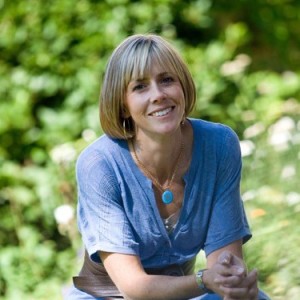
Friday Apr 24, 2020
CCR 47 Eco-Grief in a Time of Coronavirus Mourning
Friday Apr 24, 2020
Friday Apr 24, 2020
- Dr. Nathasha DeJarnett, Interim Associate Director Program & Partnership Development National Environmental Health Association
- Dr. Lise VanSusteren, an American psychiatrist in private practice in Washington, DC with a special interest in the psychological effects of climate change.
- Elizabeth Rush, author of Rising: Dispatches from the New American Shore
- Solemi Hernandez, Citizens Climate Lobby Southeast Regional Coordinator
- Edie Lush, co-host of Global GoalsCast podcast
- LaUra Schmidt and Aimee Lewis-Reau, co-founders of the Good Grief Network
- Anna Jane Joyner, co-host of No Place Like Home podcast
- Four ways Coronavirus is Turning the Natural World Upside Down, The Atlantic
- Experts See a Worrisome Link Between Pollution and Coronavirus, The Hill
- Climate Change and Health Equity, American Public Health Association
- Coronavirus: Why Has the Virus Hit African-Americans So Hard? BBC
- Climate Change Increases the Risk of Violence Against Women, United Nations
- Climate Change Leads to More Violence Against Women, Girls, Deutsche Welle
- As Cities Around the World Go on Lockdown, Victims of Domestic Violence Look for a Way Out, Time Magazine
- How Millions of Women Became the Most Essential Workers in America, New York Times
- How the Pandemic Will End: Generation C, The Atlantic
- We Need Courage, Not Hope, to Face Climate Change, by Dr. Kate Marvel, On-Being
- Olio Food Sharing App
- Dutch Baby Recipe, New York Times
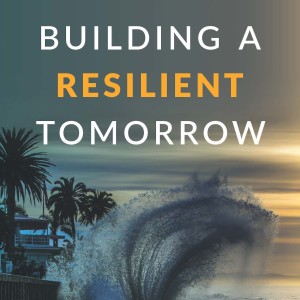
Friday Mar 27, 2020
CCR Ep 46 Coronavirus, Climate Adaptation, and a Resilient Tomorrow
Friday Mar 27, 2020
Friday Mar 27, 2020
The resilience and adaption we see happening all over the world, in our governments, and in our homes, have gotten some climate advocates reflecting on the preparations & rapid responses needed to address extreme weather events and other impacts from global warming. How is Coronavirus similar to climate change? How is it different?
Host, Peterson Toscano convenes a panel of experts to consider these questions.
- Dr. Natasha DeJarnett, the interim Associate Director of Program & Partnership Development at the National Environmental Health Association. In previous episodes she has helped us better understand public health issues and climate change. Whether she is discussing environmental racism and pollution, the illnesses afflicting coal miners in Appalachia, or promoting mental health in a time of Climate Change, Dr. DeJarnett provides well sourced and grounded information.
- Leonardo Martinez-Diaz, the director of the Sustainable Finance Center at the World Resources Institute. He leads the Center’s work to help drive finance into activities that promote sustainability and combat climate change. He served as Deputy Assistant Secretary for Energy and Environment at the US Department of the Treasury.
- Alice. C Hill, a senior fellow for Climate Change Policy at the Council on Foreign Relations. Over 10 years ago she joined the Obama administration as senior legal counsel to Homeland Security director, Janet Politano. As a climate change resilience expert, She believes we possess the tools to respond to the impacts of climate change. She and Martinez-Diaz co-authored the book, Building a Resilient Tomorrow: How to Prepare fo the Coming Climate Disruption.
In discussing the connections they see regarding our preparations for and responses to protecting the public from Covid-19 and the impacts of climate change, they point out that governments do not properly plan for unexpected future events because of a collective failure of imagination. Martinez-Diaz explains the idea of availability bias, “the difficulty that we all have to imagine things we have never seen before. Therefore, we have a lot trouble planning and getting ready for things for which we have no living memory.” This was true of Coronavirus and is also true for climate change.
In responding to crisis and suffering, they each point out the importance of having empathy towards those who are at risk, particularly the most vulnerable in society. This thoughtful and insightful conservation will help climate advocates better understand the work we seek to do in effectively communicating the urgency of climate change. Being able to tell stories to government officials and other stakeholders is a necessary skill to develop and hone.
The Art House
Hear the story of Yuri Ivanovich Petrov. As a boy he survived the infamous 900 Days Siege of Leningrad during World War II. Though he experienced the unimaginable hardships, he also developed inventive ways to survive. The lessons he learned during the greatest crisis of his generation, can help give us hope and guidance for our own.
Puzzler Question
You are talking to your. friend, Charles. Charles is concerned about climate change but doesn’t know what we could do about it. You explain carbon pricing is a powerful tool to help us decrease fossil fuel emissions. Before you could say more your Charles interrupts, “Are you out of your mind? Did you see what happened in France when they tried that. Those Yellow Vest Protest! It was a political disaster! You really expect that to work here?”
How would you respond to Charles?
Send your answers to Peterson by April, 15, 2020. You can email your responses to radio @ citizensclimate.org r leave a voicemail of 3 minutes or less at 518.595.9414. (+1 if calling from outside the USA.)
Dig Deeper
- What would happen if the world reacted to climate change lit it’s reacting to coronavirus? What would a fast, coordinated, collective response to climate change look like? by Adele Peters for Fast Company
- Coronavirus Shows Up Rapid Global Response to Climate Change Is Possible by Jamie Margolin for Teen Vogue
- America Adapts Podcast: The Climate Change Podcast
- That Discomfort You’re Feeling is Grief by Scott Berinato for the Harvard Business Review
- The Siege of Leningrad from Eyewitness to History
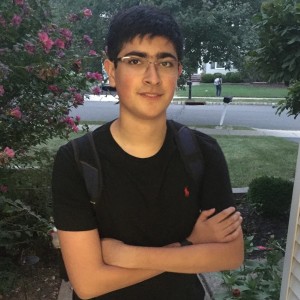
Wednesday Feb 26, 2020
CCR Ep 45 How to Engage Young People in Your Climate Group. A New Jersey Success Story
Wednesday Feb 26, 2020
Wednesday Feb 26, 2020
Concerned about climate change, Princeton University student, Jonathan Lu, and his friends became excited about a particular solution: Carbon Fee and Dividend. Through Citizens Climate Lobby they learned about a proposed national policy to price carbon and give the revenue back to households. That inspired them to ask, Could this be done in New Jersey?
Having a good idea is one thing, but doing all the hard work to make it a reality is quite another. Jonathan and his friends realized they needed help researching New Jersey state law. They also needed to speak with over 100 stake-holders all over the state. They wanted to make sure idea for legislation would appeal to as many different groups as possible.
Luckily they found a group of hard-working, intelligent, and creative people who enthusiastically joined the cause. People like Ahan Raina and Aurora Yuan. At the time they were both 15 years old.
Our host, Peterson Toscano, chats with Jonathan, Ahan, and Aurora, members of New Jersey Student Climate Adadvocates (NJSCA.) They and scores of high school and college students are working on the New Jersey Climate Investment and Carbon Cashback policy. In addition to applying what they are learning in school about climate change, economics, and civics, they are discovering just how challenging it is to devise a bill that appeals to as many people as possible. They are committed to seeing households benefit once carbon pricing begins in the state.
After hearing from over 100 stakeholders though, they realized they needed to make adjustments to their original policy proposal. In a state with many businesses and industries, they heard how their idea might impact New Jersey businesses. They came up with a compromise that has made the bill better for more people in New Jersey.
While they worked on the policy though, Student Climate Strikes broke out in North America and beyond. Why do policy work instead of strike? Both Ahan and Aurora share insightful responses.
“People are definitely talking more about climate change because of the work of these climate strikers,” says Ahan. He adds, “You can build as much public interest as you want, but then someone has to do the work of building the policy.”
Aurora believes policy is the best way to address climate change, but not the only way. “I do participate in the climate strikes...I think policy though is the real concrete solution because we can’t get any tangible change without creating policy and systematic change.”
She understands why many of her peers are furious about the world they will inherit. For Aurora though, that anger can get in the way of the conversation. “The more angry you are and the more angry words you say to other people, the less they are willing to listen to you and the less they are willing to work with you...I think having a tone of calmness and willingness to speak with others and listen to where others are coming from, and then cooperating with others is really, really important right now."
Jonathan, experienced great success working with high school students on climate policy. In this episode he offers excellent advice to climate groups who want to work with young people.
If you inspired anew by this rising generation and learn some practical strategies for developing effective policy while for working with youth, hear the full interviews in this latest episode.
To learn more, follow them on Instagram.
The Art House
Irish author, Shirley McMillan wanted nothing to do with climate change. A busy mom with a young child, she recoiled when Peterson Toscano first initiated a conversation with her about climate change six years ago. She did not deny the reality or seriousness of climate change, but it all felt too much. She was also uninspired by the many suggestions for how women can do all the hard work to lower the family’s carbon footprint.
Then something changed; Shirley began to see climate change as something more than just an environmental issue; she realized how it is also a human rights issue.
Hear a lively conversation between Shirley and Peterson as she shares why it took her awhile to warm up to climate action. Learning about her reasons may help you better understand why your own friends and loved ones switch off when you start talking about climate change. Discover how over time you can influence your friends to embrace climate change on their own terms.
Puzzler Question
Like Shirley, your friend, Heather, told you she wanted nothing to do with your climate work. She also had a limited view of what that work looks like: “Don’t take this the wrong way, but I don’t have time for climate work. I feel bad saying that but I work full time and I have two children still in school. I don’t have time for protesting right now”
Hear what listeners had to say to Heather.
New Puzzler Question
You are talking to your friend, Charles. Charles is concerned about climate change but doesn’t know what we can do about it. You explain how carbon pricing is a powerful tool to help us decrease fossil fuel emissions. Before you could say more Charles interrupts, “Are you out of your mind? Did you see what happened in France when they tried that. Those Yellow Vest Protest! It was a political disaster! You really expect that to work here?”How would you respond to Charles?
Send Peterson your answers. Leave your name, contact info, and where you are from. Get back to him by March, 15, 2020. You can leave a voice mail of 3 minutes or less at 518.595.9414. (+1 if calling from outside the USA.) or email your answers to radio @ citizensclimate.org
Dig Deeper
- Economists’ Statement on Carbon Pricing The Climate Leadership Council
- Pricing Carbon The World Bank
- A Brief Look at Carbon Pricing by Canadian Province The North Shore News
- Ten Carbon Pricing Bills before the US Congress, Eco-Justice Journey, The Presbyterian Mission
- Energy Innovation and Carbon Dividend Act (HR 763)
You can hear Citizens’ Climate Radio on iTunes, Spotify, Stitcher Radio, SoundCloud, Podbean, Northern Spirit Radio, Google Play, PlayerFM, and TuneIn Radio. Also, feel free to connect with other listeners, suggest program ideas, and respond to programs in the Citizens’ Climate Radio Facebook group or on Twitter at @CitizensCRadio.
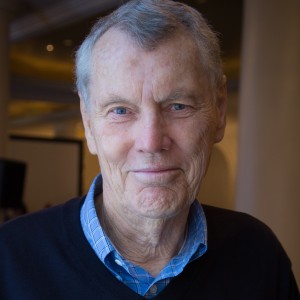
Friday Jan 24, 2020
CCR Ep 44 The Extraordinary Marshall Saunders
Friday Jan 24, 2020
Friday Jan 24, 2020
On October 20th 2007, after having a revelation about the severity of climate change, Marshall Saunders launched Citizens Climate Lobby. He then inspired over one hundred thousand everyday citizens to appeal directly to members of congress. He helped empower them to offer a bold and straight forward solution to address climate change. Everyone who met Marshall, heard him speak, and worked beside him walked way with determination and a deeper belief in their own ability to change in the world. On December 27th, 2019 at the age of 80, Marshall Saunders passed away at his home in Coronado, California.
As host of Citizens Climate Radio, Peterson Toscano had the pleasure of sitting down to record interviews with Marshall multiple times. In these lively conversations, Marshall's voice is filled with kindness, wisdom, tenderness, insights, and mirth. Whenever Marshall spoke about CCL, he expressed an unshakable faith in individuals to do far more than they ever imagined possible. As a leader, he influenced hundreds of thousands of volunteers to believe something outrageous—that cooperation in the US congress leading to bipartisan climate legislation was not only possible, but inevitable.
For our main section we return to the beginning and bring you an intimate, moving, and at times hilarious conversation with Marshall Saunders, founder of Citizens Climate Lobby, and Mark Reynolds, the executive director. They reveal their origin stories. Highly ambitions and successful businessmen, they seemed unlikely candidates to head up an organization that puts relationship-building and climate advocacy at its heart.
We may say of a man that he is more often kind than cruel, more often wise than stupid, more often energetic than apathetic or vice versa; but it could never be true to say of one man that he is kind or wise, and of another that he is wicked or stupid. Yet we are always classifying mankind in this way. And it is wrong. Human beings are like rivers; the water is one and the same in all of them but every river is narrow in some places, flows swifter in others; here it is broad, there still, or clear, or cold, or muddy or warm. It is the same with men. Every man bears within him the germs of every human quality, and now manifests one, now another, and frequently is quite unlike himself, while still remaining the same man.”
It sounds like Heather as a limited view of what climate work looks like. How would you respond to Heather?
Send Peterson your answer by February 15, 2020, along with your name, contact info, and where you are from. You can email your answers to radio @ citizensclimate.org or leave a voicemail of 3 minutes or less at 518.595.9414. (+1 if calling from outside the USA.)
- A history of Bipartisanship : BipartisanPolicy.org
- Cooperation: Congress Simply Has to Bring it Back : Brookings Institute
- Five myths about bipartisanship : The Washington Post
- Marshall Saunders Obituary : Coronado Times
- Resurrection by Leo Tolstoy : Good Reads
You can hear Citizens’ Climate Radio on iTunes, Spotify, Stitcher Radio, SoundCloud, Podbean, Northern Spirit Radio, Google Play, PlayerFM, and TuneIn Radio. Also, feel free to connect with other listeners, suggest program ideas, and respond to programs in the Citizens’ Climate Radio Facebook group or on Twitter at @CitizensCRadio.
If you listen on iTunes, please consider rating and reviewing us!

